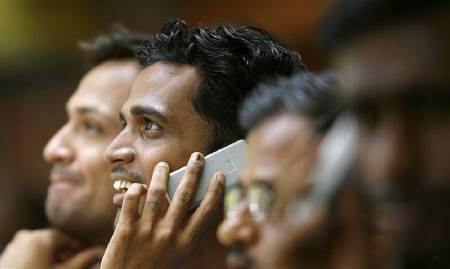
In a bid to reduce call rates, Telecom Regulatory Authority of India announced on Monday its decision to slash various interconnection charges, both in mobiles as well as landlines.
TRAI has announced a revised set of domestic termination charge (mobile termination charges and fixed termination charges) and international terminal charges.
"We will pass on the benefits to consumers and this can happen from as early as April," BSNL CMD Anupam Shrivastava told TOI. BSNL, as of now, has around 1.7 crore fixed-line telephone connections, while accounting for over 60% of landline subscribers. "We have already started working on the proposed tariff plans."
The termination charge from fixed-line phones has now been reduced from 20 paise per minute to zero; whereas in mobile phones, the charge has been slashed by 30%, i.e. 14 paise from the previous 20 paise per minute. But while all that sounds good, we ask about the kind of difference it will make in this age.
There's a reason why the new TRAI regulations mostly favour the ones that still have a landline. While landline usage has witnessed a dramatic fall in the last few years due to the emergence of smartphones, there are a few who still talk about a pre-historic landline connection at home.
And moreover, TRAI and everyone else in the country know that people nowadays can contact others by various means and not just by calling. Most of the Indian carriers are already facing a kind of downhill curve with most of them blaming the IMs for reduced calls among users.
In December last year, Cellular Operators Association of India (COAI) filed a complaint with telecom regulator TRAI, making a series of allegations against (over-the-top) OTT players like WhatsApp, Skype and Viber ranging from running operations without licences and permissions to conducting business without following the security norms.
"TSPs in India are subjected to a wide array of licensing provisions, including but not limited to, regulatory fee, spectrum usage charges, quality of service regulation, tariff regulations, regulatory audits, consumer protection regulations, privacy of communication... and lawful monitoring and interception," Rajan Mathews, DG of COAI, previously stated in a letter accessed by TOI.
"However, such conditions are not imposed on unlicensed OTT internet telephony providers," he added. And in case you didn't know, top operators like Bharti Airtel, Vodafone and Idea Cellular are members of COAI. In fact, Facebook also became a member in August, last year.
Now, with TRAI's newest regulation in place, BSNL - the largest fixed-line provider in the country - said tariffs are to fall "substantially", while smaller mobile operators like Uninor said customers "will benefit" from the measure. However, Airtel, Vodafone and Idea Cellular — the country's top three mobile telecom providers – are yet to comment on the decision.
Meanwhile, these operators had earlier opposed the reduction in termination charges during deliberations with TRAI as they enjoy maximum termination of calls on their networks due to large subscriber holdings. But the Telecom analysts say bigger operators are expected to join in when their smaller counterparts start cutting tariffs.
Here on, it would be of some interest to note as to how many mobile users (not landline) actually end up making calls to their peers, ignoring the vast set of options at hand (IMs). And with new advances being made, including 3G and video-calling capabilities, it's a bit hard to see why users would suddenly deviate from the usual.
Related

















